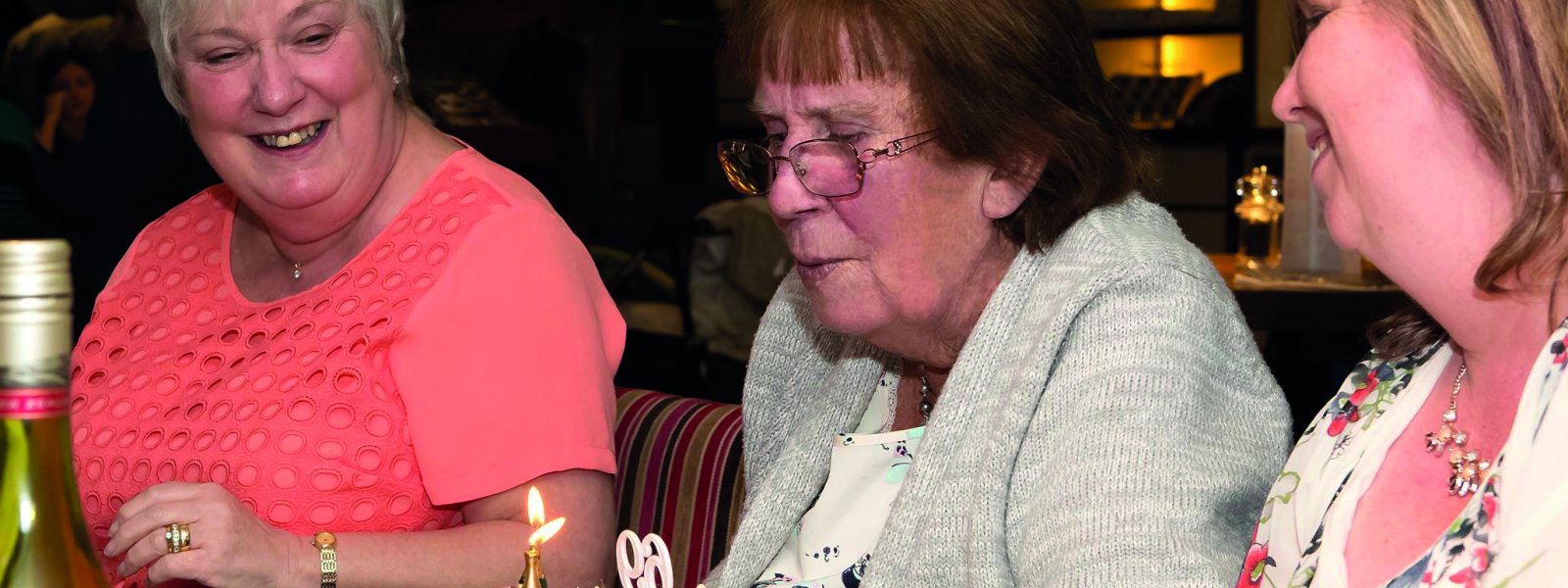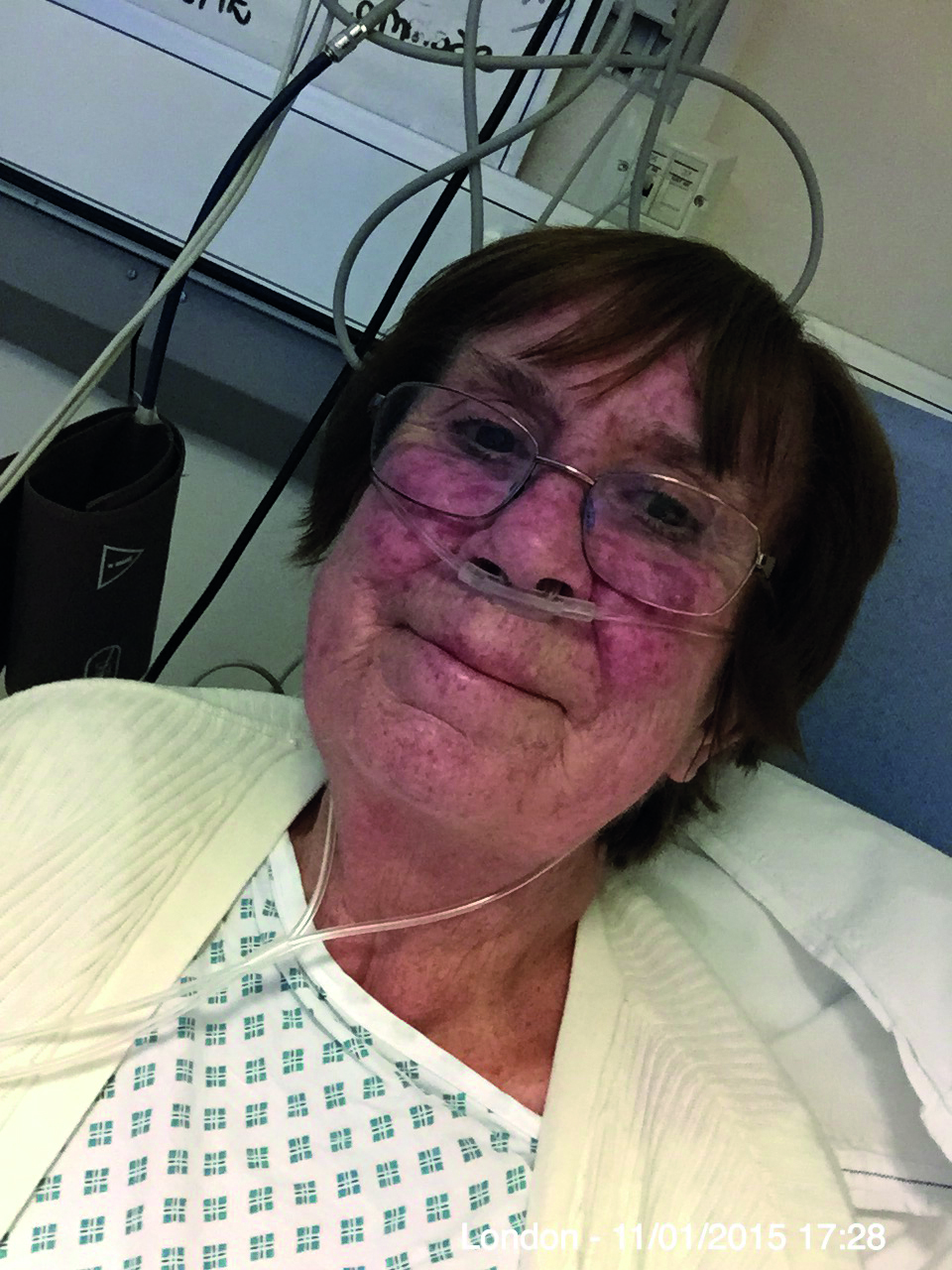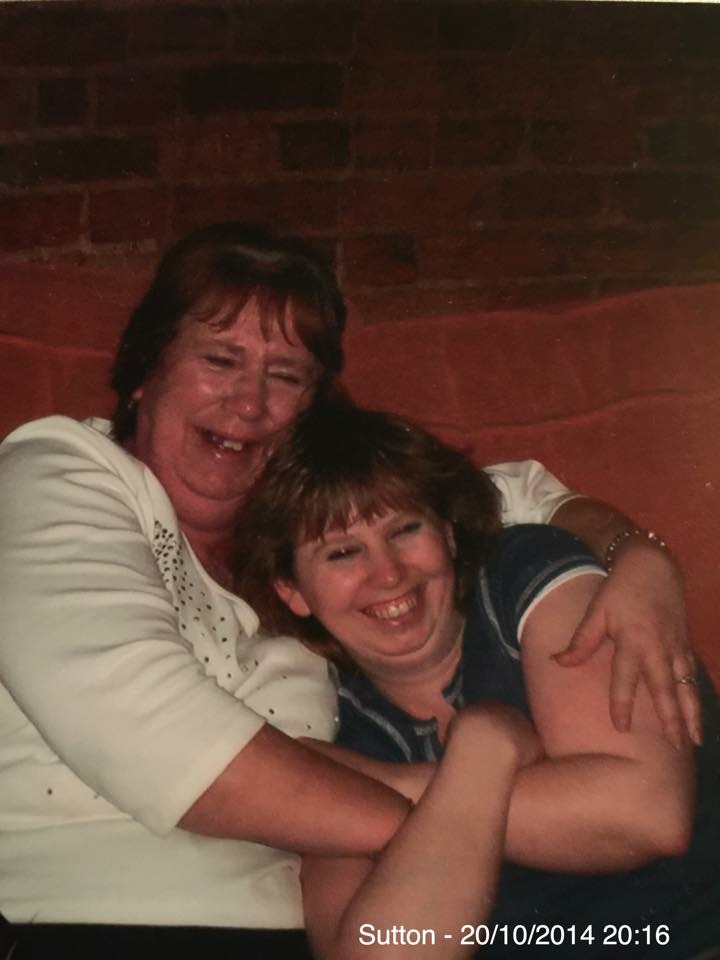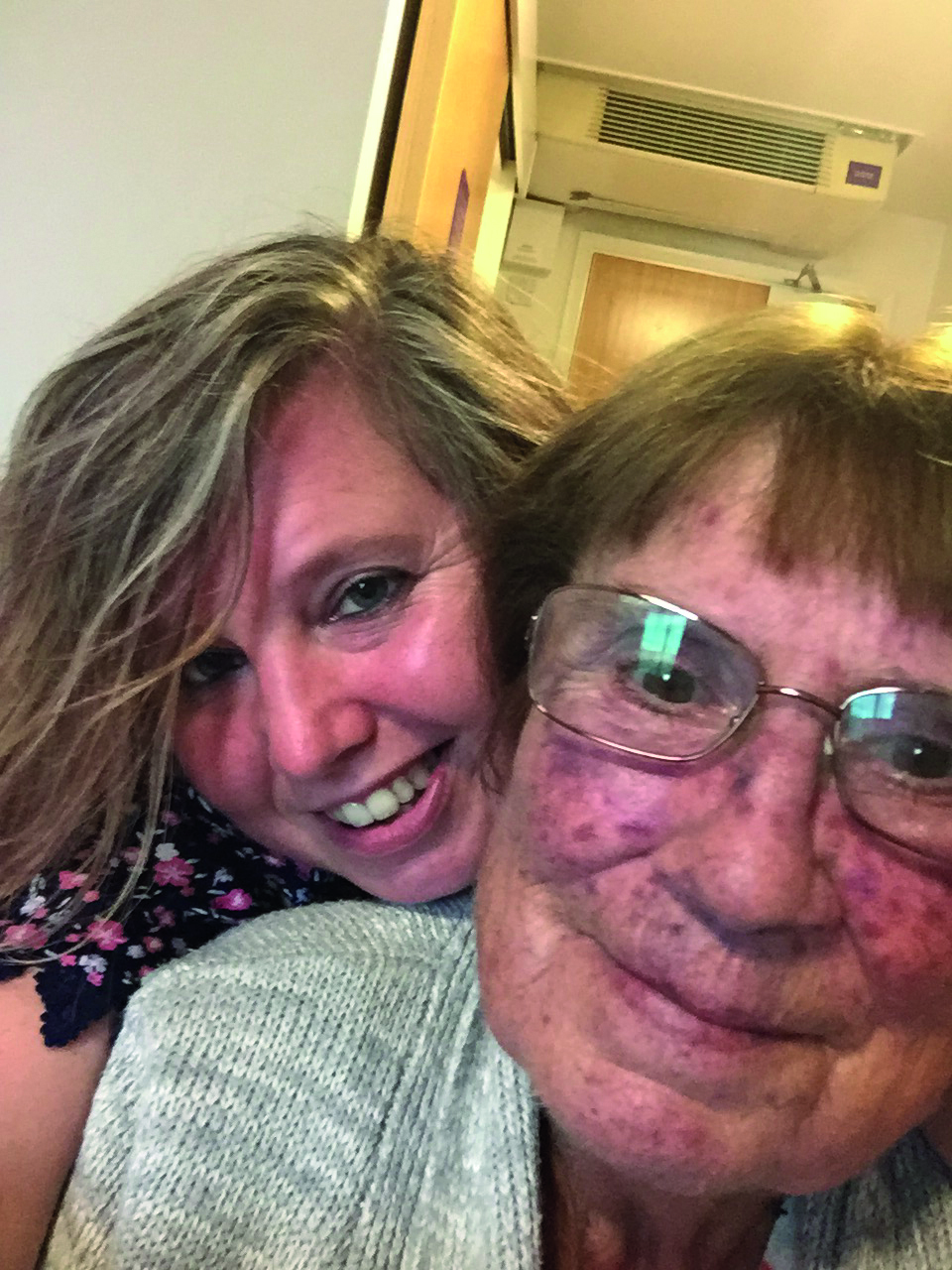Taking care of Mum
Dawn Shelley from Sutton became a full-time carer for her mum, Christine Codd, after she was diagnosed with PH in 2012. Her experiences of struggling alone have led to her setting up a Facebook group, ‘Carers for PHighters’, to help other carers access support and advice. Here, Dawn shares her story.
“Mum was officially diagnosed with pulmonary hypertension associated with Scleroderma at Hammersmith Hospital, and she also had the connective tissue disorder ‘CREST’.
Her first symptoms were in 2007, when she had problems with swallowing, and she was diagnosed with esophageal disease. A year later she was diagnosed with Reynaud’s phenomenon.
Dawn Shelley’s Mum, Christine Codd
We then noticed Mum had blotches like broken veins on her face, but her GP said it was ‘just old age’. In around 2010 she started to get a bit breathless, but we were told it was ‘probably asthma’.
For about 18 months Mum tried various different inhalers, before she finally saw a different GP who referred her to our local hospital. Here she saw the Respiratory Consultant, who by chance had recently attended a conference that covered PH.
Unfortunately, by the time she was diagnosed, Mum was already at stage three. She was immediately started on treatment. Following a chest infection in December 2014, Mum become unwell and after a trip to our local hospital she deteriorated. She was admitted to Hammersmith and after three weeks was discharged with ‘end of life’ care. By this time, she was in a wheelchair, and on oxygen 24/7.
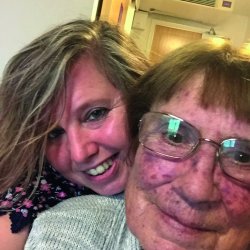
Being a full-time carer for a loved one is hard and I suffered physically, financially, mentally and emotionally.
Mum initially had carers in place through our local social services and she hated it. We also found they weren’t giving her ‘proper’ care, so after a week I decided I would give up my job as a children’s nurse to care for her full time. We also paid for a private care company to provide us with additional help a few times a day. With the joint efforts of the carers and myself, Mum started bouncing back and for a few months she seemed a lot better. She started going to the local hospice for craft sessions and to have lunch with the other patients, and we started going out for meals together again, and to the local garden centre. We also went to see Lionel Richie in London in July; something Mum had always wanted to do.
As a carer I felt isolated and alone.
Everything was great until July 14th 2016 when she suddenly seemed to deteriorate. I managed to persuade her to let me call an ambulance and she was admitted to hospital. After a three-day stay the doctors discharged her home ‘to die’ and she was now bed-bound, which she found very hard.
At this point I was living with her, as she wasn’t coping very well. She did bounce back again briefly before finally giving up the fight on the 1st September 2016. She died in my arms, surrounded by close family.
Dawn Shelley and her Mum Dawn with Mum before Lionel Richie concert
As a carer it was tough. I did Mum’s medications, attended all her hospital and doctors’ appointments, and attended to all her personal and basic care.
As well as giving up my career, I also ended my marriage and moved in with her after her hospital stay as she needed someone there 24/7. My marriage was on the rocks anyway and seeing Mum deteriorate made me realise that life’s too short.
Being a full-time carer for a loved one is hard and I suffered physically, financially, mentally and emotionally. My only income was carer’s allowance and Mum gave me attendance allowance. Everything took its toll and I was diagnosed with depression. In front of Mum I had to pretend everything was ok, so my suffering was in silence. I hid it from friends and family.
Mum was my best friend and we were very close.
The only support I received was from the hospice’s counsellor, who was amazing.
As a carer I felt isolated and alone. No-one understood what I was going through and people assumed I was fine – which was partly my fault, as I didn’t want to burden people. And besides, compared to what Mum was going through my problems seemed insignificant.
Mum was my best friend and we were very close. Watching her going through what she did was hard and I had no one I could really talk to; I found there were groups for people who had PH but nothing to support people like me.
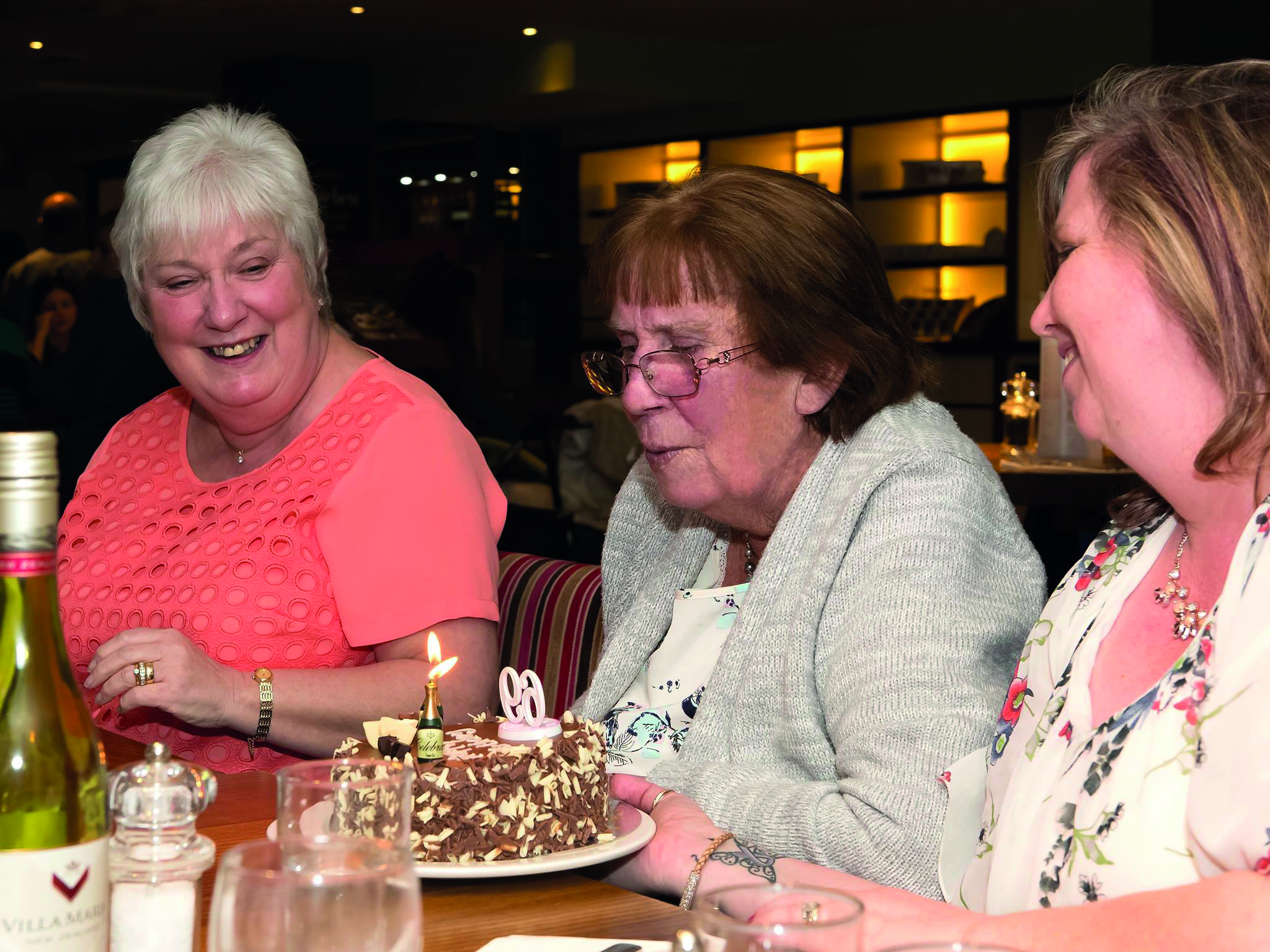
Before I set up the Facebook group I used to go on various PH forums but I felt guilty ‘moaning’ about my problems to a group that was full of people suffering themselves from an illness that I was moaning about. It didn’t sit right.
Carers for PHighters is a group where we as carers can talk about anything that needs talking about – whether it is PH related or not. As I found, there are lots of other issues that come when caring for a loved one.
There are no rules to the group – except that it is strictly for carers of people with PH only, not patients themselves. We have parents, siblings, friends and partners on there, and they can talk about anything, confidentially.
I want the group to be a place where people can open up and discuss anything that is worrying them. I want them to feel that they are not alone, to ask for advice, and to come and rant about anything that has happened to them that day. I know more than anyone how damaging it can be not to talk to someone. I now have good days and bad days. I’m still on antidepressants and am arranging to see a counsellor, but I have no regrets about caring for Mum – I feel I did the best I could to ensure she had a good quality of life.”
